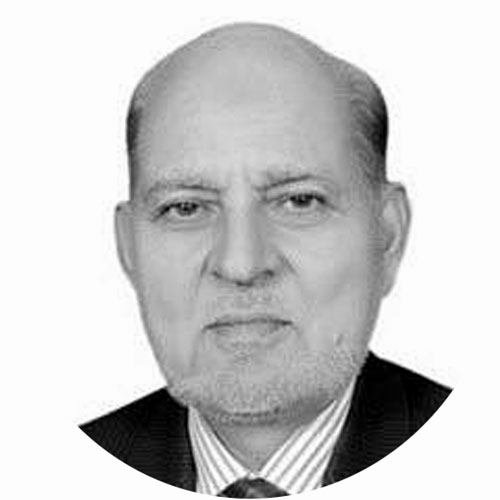Pakistan should now recognise new Afghan Govt
THE Taliban have come to power in Afghanistan as a result of the signing of the Doha Agreement between the then Trump Administration and the Taliban, on 29 February 2020, and the consequent withdrawal of the US/NATO forces by 31 August 2021.
The Doha agreement clearly indicated that the US and the NATO countries had accepted the Taliban as the next main stakeholder in the Afghan affairs.
And, after signing of the agreement, except India, all the regional countries, including China, Russia, CARs, Iran, Pakistan, Turkey and the Gulf countries had started consultations with the Taliban as they had also accepted them as the future power broker in Afghanistan.
The acceptance of the Taliban as the main stakeholder by the US/NATO countries is further amplified by the following points of the Doha Deal.
The Taliban will guarantee that Afghanistan’s soil will not be used by any terrorists against the US/allies. The US will provide guarantees that the US/NATO troops in Afghanistan will be withdrawn by 1 May 2021 (later extended by President Biden to 31 August 2021).
The Taliban and the Ghani government in Afghanistan will start a dialogue by 10 March 2020 to conclude an agreement on a permanent cease fire, future political roadmap of Afghanistan and to form an inclusive interim government.
As per the Doha Deal, with the start of the intra-Afghan negotiations, the US will initiate actions to remove the current sanctions against members of the Islamic Emirate of Afghanistan (not recognized by the United States as a state and known as the Taliban) and the names of its members will be removed from the UNSC sanctions list by May 29, 2021.
As per the deal, both sides released the prisoners and the dialogue between the Taliban and Ghani Government started late, in September 2020, due to Ghani government’s delaying tactics.
Although a few rounds of talks were held in Doha, but without any results, as the Ghani Administration wanted to cling to power in Afghanistan, instead of forming an inclusive government.
Ghani even did not accept the US advice of urgently forming an inclusive government with the Taliban. In this whole process, India was acting as the major spoiler, as it ill-advised the Ghani Government, because it wanted to continue using the Afghan soil to destabilize Pakistan.
Despite all this, President Biden remained determined to complete the withdrawal of the US/NATO troops by 31 August 2021, which was completed in advance, by 15 August 2021, and the Taliban took control of Afghanistan/Kabul on 15 August 2021, as the Afghan Army did not put up any resistance and the then President Ghani also fled the country.
Although the Ghani Government gave a free run to the Taliban to take over Afghanistan/Kabul much earlier than expected, to dilute the domestic criticism due to messed up withdrawal, the US/NATO countries have blamed the Taliban for occupying Kabul in their troops presence, and announced that the Taliban Government will not be recognized till it implements all clauses of the Doha agreement and human/women rights.
The US/NATO countries have also frozen Afghanistan’s $ 9 billion assets and stopped any IMF/World Bank’ economic aid to the Taliban government.
These decisions have added to Afghanistan’s destabilization and aggravated the plight of the Afghan people.
This harsh policy of the US/NATO countries is still prevailing despite the fact that the Taliban has formed an inclusive government, announced general amnesty, allowed the women to go to schools/work places, and stated that the Afghan will not be used against any other state.
However, in the above discussed situation, it is difficult to understand that why China, Russia, Central Asian Republics (CARs), Iran and Pakistan are holding their decision to recognize the Taliban government in Afghanistan, especially when they are maintaining their diplomatic missions in Kabul, and particularly, when they had since long accepted the Taliban as a major stakeholder in Afghanistan to counter the IS threat to the region.
While the above discussion suggests to the US/EU countries to immediately recognize the Taliban Government, restore Afghanistan’s economic assistance and implement the outstanding clauses of the Doha Agreement, it is more important for the aforementioned regional countries to share the major burden of stabilizing Afghanistan (as was also emphasized by President Biden in his withdrawal speech) by urgently recognizing the Taliban Government and providing the economic assistance that will also facilitate the peace building and the CPEC-based connectivity/economic progress of the region.
For Pakistan, the stakes are too high as any kind of internal strife in Afghanistan due to its economic meltdown will adversely impact it in the form of inflow of refugees and rising inflation, which can politically destabilize it.
Hence, despite the US pressures, while Pakistan should immediately recognize the new Afghanistan government, it should also convince China, Turkey, Iran, Saudi Arabia, and UAE to do the same and provide economic aid to Afghanistan to stabilize it.
Pakistan should also urgently recognize the new Afghanistan Government to deny India any strategic space there.
Although India is still playing a spoiler role to keep the Taliban Government unstable, as a second option, it has also used Russia’s support and met the Taliban on the sidelines of the Afghanistan conference recently held in Russia, in a bid to end its regional isolation in the process of decision making about the Taliban Government. India also plans to send 50000 MT of wheat to Afghanistan.
—The writer is a former Research Fellow of IPRI and Senior Research Fellow of SVI Islamabad.










